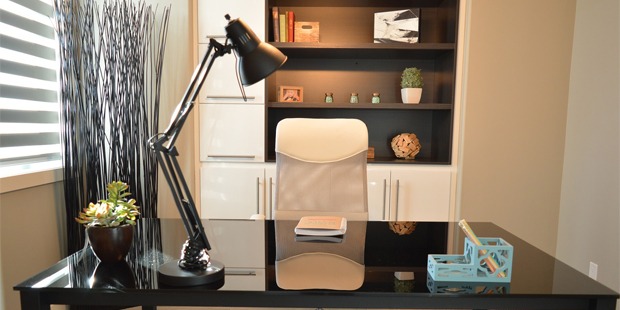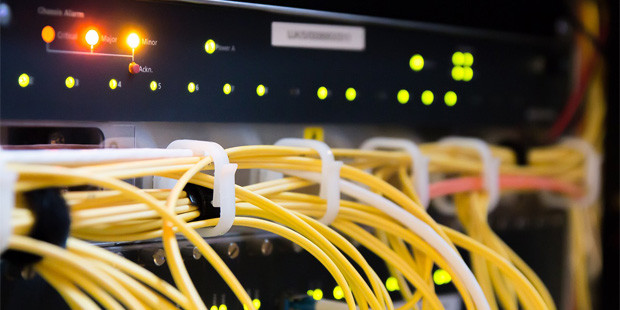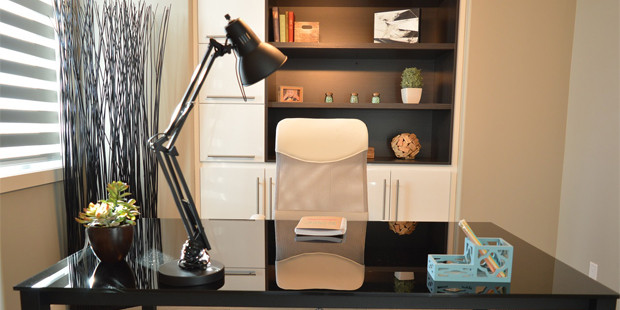9 Work From Home Equipment to Invest In

Nowadays, work from home setups have become the norm. With the threat of the Coronavirus pandemic still as dangerous as ever, companies have shifted their operations remotely with some businesses even shutting down their offices temporarily in the effort to limit the spread of the virus between employees and clients. For many, working from home has become a challenge due mostly to having the wrong equipment when completing daily tasks. If you’re experiencing the same problem, here are nine work from home equipment that you should invest in to not only help you improve your remote office setup but also to increase productivity:
- Tips to Stay Organized While Working From Home
- Work From Home Tips to Help You Maximize Productivity
1. A good chair
A staple in every work from home equipment checklist, having a good chair doesn’t just help you increase productivity, but also help you prevent having back problems in the long run. You may have to invest a little bit when buying a chair, but it’s all worth it especially if you’ll be working from home in the foreseeable future. If you’re also the type who likes to sit on the floor cross-legged while placing the laptop on a sofa or bed, then it’s time to change those habits and buy a chair. It's also never recommended to purchase a standing desk.

The best ergonomic office chairs help you improve body posture and reduce pain, helping you focus throughout the day. Go for chairs that allow you to rest your head and help you maintain a straight body posture, essentially chairs with a head cushion and a high mesh back. Also, look for chairs that have rollers and those that are adjustable as this helps you with mobility. A leather computer chair is a great option if you have an additional budget, but it can easily heat up during warm days and can be very uncomfortable if you easily sweat.
2. A computer with adequate specs
Most companies don’t really require their employees to own high-end computers when it comes to remote setups. But they do require their employees to own computers that can run company-specific software as well as computers that won’t crash every time a video conference is being held. If you feel like your computer or laptop won’t be able to handle office-related tasks, then you have two options to address this issue.
The first option is to free up space. You likely aren’t using a Windows XP computer, so your device should be fine running the latest apps. All you need to do is free up space by deleting apps that you don’t need for your work. This might mean sacrificing certain apps like games and streaming platforms, but it can be beneficial in the long run since you’ll be focusing on your work and you can always run these apps on other devices like your phone or tablet.

The second option, which is probably the option that you should go with if you’re left with no choice, is buying another computer. Always consider your budget and your needs before making a purchase. You may be tempted in purchasing a gaming computer instead, which isn’t only expensive but also defeats the purpose of buying something that you’ll actually be using for work. Go for desktop computers or laptops that have Core i3 and Core i5 processors, at least 4GB RAM, at least 1TB Solid State Hybrid Drive (SSHD) or 1TB Hard Disk Drive (HDD), at least 512MB video memory, and Windows 10/Macintosh OS 10.11 operating systems. Computers with these specs should help you finish your tasks much faster and more efficiently. Much importantly, they also won’t break the bank.
3. Internet hardware
In an interconnected world, high-speed internet is key. And with companies now moving most of their operations remotely, the importance of a reliable internet connection cannot be stressed enough. Purchasing these work from home must-haves may not be necessary for you personally, but if you want to have an uninterrupted work schedule free of slow and irregular internet connection then purchasing internet hardware should be high on your list.
Some of the internet hardware you can purchase include a network router, wi-fi repeater, wi-fi extender, and ethernet cable. Your broadband plan may already come with a router, so there is no need to purchase another one unless multiple computers will require internet access at home. Wi-fi repeaters and extenders on the other hand are helpful in providing connectivity to the entire home, but the two function quite differently. A repeater broadcasts the signal in weaker while an extender extends the range of a network coverage area. Since extenders are more tricky to set up, they are more expensive. As for an ethernet cable meanwhile, it is simply a cable that connects the router to a device resulting in a more stable and stronger Internet. Go for Cat 5e or Cat 6 cables, but if the speed of your internet plan goes beyond 10,000 Mbps then Cat 7 and Cat 7a cables are better options.
4. A webcam and noise-canceling headphones
Since every meeting is now accomplished online, the importance of a webcam and a headphone couldn’t be any more significant. This is especially true when you’re involved in sales and meeting with clients multiple times in a single day. Additionally, these two work from home gadgets have become the go-to equipment for managers, supervisors, and even company executives looking to monitor the daily operations of their respective companies. Video conferencing is essentially the only thing that keeps the communication lines open for companies these days, and it all starts with having a good pair of noise-canceling headphones and an excellent HD webcam.

These days, the standard resolution of a webcam stands at 1080p while the standard frame rate doesn’t go below 30fps. You shouldn’t worry about finding a webcam with these specs since they are sold in every tech shop. But if it's better picture quality you’re aiming for, then a 4k webcam is also a great option. When it comes to noise-canceling headphones, on the other hand, they don’t just cancel out all types of noise but they also provide some excellent audio quality, great for listening to some tunes when you’re not in a meeting with a colleague or client. Take note that 1080p webcams and premium noise-canceling headphones can be pricey, so check your budget before making a purchase. Alternatively, you can opt for 720p webcams or low-cost headphones if you want to save a few hundred dollars.
5. An uninterruptible power supply (UPS)
Are you experiencing regular power outages in your area? Then it’s finally time to purchase a UPS. The last thing you want to happen is to get cut in the middle of a meeting or in the middle of an important task due to a power outage. Also, a UPS extends the lifespan of your devices since they now won’t be abruptly shutting down every now and then. With this, purchasing a UPS should be on the top of your priority list.
Take note that not all UPS devices can cover every outage need. There are three types: a Standby UPS Unit, a Line-Interactive UPS Unit, and an Online UPS Unit. Standby and Line-Interactive UPS Units are mostly the same, but the latter comes with a special transformer and is better at handling brownouts and power sags. On the other hand, Online UPS systems are more complicated setups since they require more circuitry, completely isolating the devices through a separate battery system. If you’re not running a 24/7 company in your home, then a Standard or Line-Interactive UPS system will do.
6. A surge protector
Oftentimes an overlooked item, a surge protector is one of the items that you should definitely have in your home. A surge protector mainly functions as a device that protects all your electronic devices from a high-voltage power surge. Additionally, it also connects all of your devices to a single power outlet. Much like a UPS, a surge protector helps keep your devices from getting damaged from sudden outages.

Since you will be essentially be dealing with electrical equipment, ask for help when you’re about to purchase a surge projector. Also consider these options when making the purchase: the number of ports, the office equipment you will be plugging into the surge projector, the UL seal, and most importantly, the warranty.
7. A file cabinet and/or a fire-safe box
Even if you’re aiming to go paperless, there are always some hard copy documents you need to keep. This is why having a file cabinet is necessary so that all of your files will be kept in a single place. Additionally, having a file cabinet will also keep your desk from becoming a mess. Depending on the files you will be storing, you don’t need to invest in a huge cabinet. A two or three-drawer cabinet will more than suffice.
If you want your confidential files to be truly safe, especially in an event of a fire or theft, then consider purchasing a fire-safe box. Many small business owners use a fire-safe box to store backup copies of documents and even cash on some days. Although it isn’t necessary to get one, if you feel like a fire-safe box is the answer to all of your safety concerns then don’t hesitate to make that purchase.
8. Backup devices
Speaking of backup devices, a fire-safe box isn’t the only equipment that will help you back up your files, especially in the 21st century. Whether it be cloud storage or physical storage devices, there are a variety of options you can choose from to help you not only save your files in a secure location but also access them anytime and anywhere. Google Drive and Dropbox are your best options for cloud storage while flash memory drives and external HDD/SDDs are the most reliable options when it comes to physical storage devices.
Google Drive and Dropbox are mostly free and both allow you to store and share multiple file types with a single tap of the screen. Payments for both platforms will only come in when you decide to add more storage. As for the ever-reliable physical storage drives, they can be found everywhere and are very affordable even for HDDs. With more users transitioning to the cloud in the foreseeable future, expect prices of these home office accessories to drop even further. If you think about it, storing your flash drive or HDD in a fire-safe box also doesn’t seem to be a terrible idea.
9. Desk lamps
You may have never worried about lighting in your office but it may be a completely different situation at home where you don’t necessarily have adequate lighting on your desk or in the workspace. If your home office is in the living room or in a room shared with other people, then investing in a desk lamp is highly important since you won’t want switching the main lights on especially during at night.

When picking the right desk lamp, go for the ones that are adjustable and support LED lighting. LED desk lamps don’t just provide a bright, clear light but they are also affordable and energy-efficient. Additionally, go for adjustable lamps to help minimize glare issues. Similar to getting a good chair, investing in adequate lighting is necessary so that eye problems such as eye strain and blurred vision can be prevented later on. Remember that when your eyesight is affected, you won’t able to work so take care of it by purchasing a proper desk lamp.
Most companies usually don’t provide equipment for their employees in a remote office work setup. Since you will be the one doing some shopping, just take note of the items listed above and you will be on your way to having a very productive work week. Also, make sure to spend within your means and don’t make a purchase that you think will not benefit your job in the long run.









